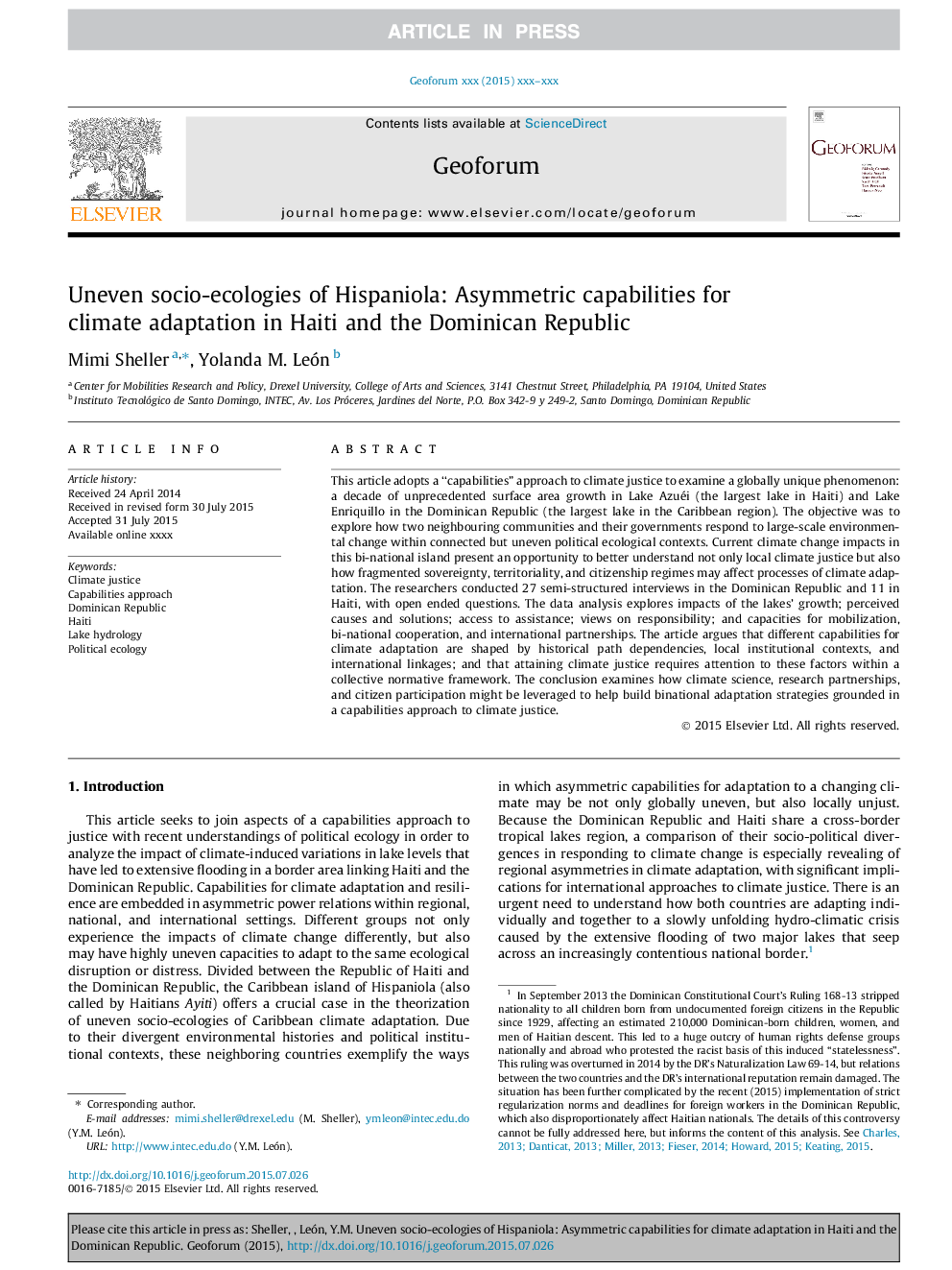| Article ID | Journal | Published Year | Pages | File Type |
|---|---|---|---|---|
| 5073430 | Geoforum | 2016 | 15 Pages |
Abstract
This article adopts a “capabilities” approach to climate justice to examine a globally unique phenomenon: a decade of unprecedented surface area growth in Lake Azuéi (the largest lake in Haiti) and Lake Enriquillo in the Dominican Republic (the largest lake in the Caribbean region). The objective was to explore how two neighbouring communities and their governments respond to large-scale environmental change within connected but uneven political ecological contexts. Current climate change impacts in this bi-national island present an opportunity to better understand not only local climate justice but also how fragmented sovereignty, territoriality, and citizenship regimes may affect processes of climate adaptation. The researchers conducted 27 semi-structured interviews in the Dominican Republic and 11 in Haiti, with open ended questions. The data analysis explores impacts of the lakes' growth; perceived causes and solutions; access to assistance; views on responsibility; and capacities for mobilization, bi-national cooperation, and international partnerships. The article argues that different capabilities for climate adaptation are shaped by historical path dependencies, local institutional contexts, and international linkages; and that attaining climate justice requires attention to these factors within a collective normative framework. The conclusion examines how climate science, research partnerships, and citizen participation might be leveraged to help build binational adaptation strategies grounded in a capabilities approach to climate justice.
Related Topics
Social Sciences and Humanities
Economics, Econometrics and Finance
Economics and Econometrics
Authors
Mimi Sheller, Yolanda M. León,
